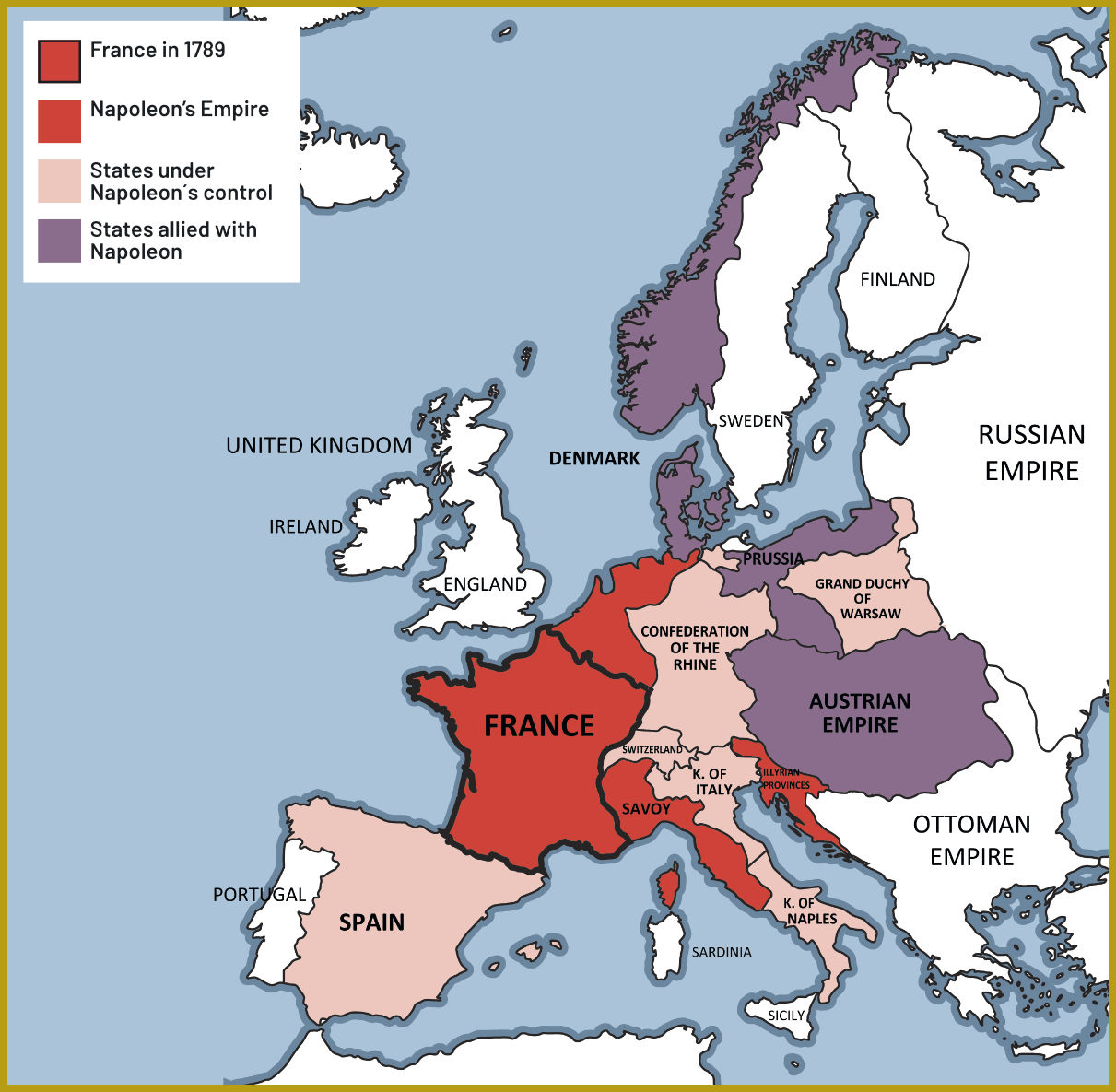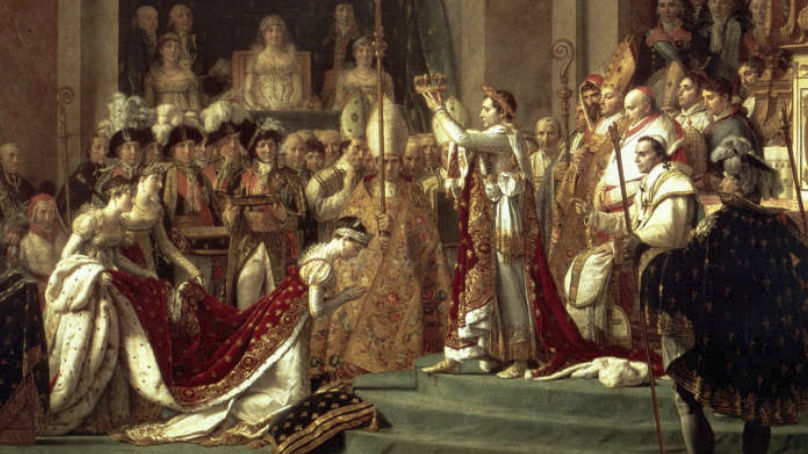General Napoleon Bonaparte used his brilliant military capabilities (campaigns of Italy and Egypt) to seize power in France. In 1800 he concentrated the actual powers of the State after a plebiscite, as First Consul; in 1802, he became Consul for life; in 1804 he crowned himself emperor. It was a contradictory position, since he was said to be the follower of the Revolution and at the same time he was determined to concentrate an almost absolute power in his hands.

Napoleon centralized the power of the State. In spite of the formal existence of representative bodies, the emperor could ignore them and take political decisions without the participation of elective institutions. He also controlled local administration. He limited certain rights as the freedom of speech (the government frequently censored newspapers), and eradicated political opposition through a secret police. For some historians, Napoleon was little less than a dictator.
On the other hand, Napoleon reorganized France under the principles of effectiveness and moderation, as a reaction against the radicalism of the Revolution. The Bank of France was created to organize the State financial system (including the issuing of banknotes). The Code of 1804 confirmed the right to private property, which implied the economic security that the bourgeoisie needed to create a prosperous country. A new educational system was developed with new lycées (secondary schools). Scientific research was encouraged. The principle of equality of all men ensured a merit-based system.
The strategic talent of Napoleon was able to defeat the coalition of European powers in victorious battles: Austerlitz against Austria and Russia (1805), Jena against Prussia (1806), Friedland against Russia (1807). The Empire reached then its greatest extension: annexed to France were Belgium, Genoa and Piedmont, the Illyrian Provinces, the francophone cantons of Switzerland, Northern Germany, Rome and Florence; the kingdom of Italy was governed directly by Napoleon. Satellite or family States were Holland (with his brother Louis as king), Westphalia (under Jérôme Bonaparte), Spain (under Joseph Bonaparte), and Naples, where reigned his general Murat. Other States under French influence were the newly created Confederation of the Rhine and the Duchy of Warsaw. Except Great Britain, nobody could resist the French army. Against Britain, Napoleon created the Continental System, an economic and trade blockade, but the British naval superiority kept the island safe. In fact, a combined navy of French and Spanish ships was defeated in Trafalgar in 1805 by the British; this sea battle implied the beginning of the British world naval supremacy.

Wikiart
In 1812 the emperor decided to send a "Grand Army" of 500.000 men to invade Russia, since the Tsar had refused to accept the Continental System against Britain. He reached Moscow, but the Russian troops withdrew and avoided battle. The result was that the French army found itself without supplies. Winter forced Napoleon to order a retreat, but he lost 250.000 soldiers, and 100.000 were taken prisoners. Immediately a new coalition was formed between Great Britain, Austria, Russia and Prussia; their armies defeated Napoleon in the battle of the Nations of Leipzig (1813). The emperor abdicated and was exiled to the island of Elba, from where he escaped in 1815 and tried to recover the throne (the "Hundred Days"). He was definitely defeated at Waterloo and exiled again to the island of St. Helena, where he died.
